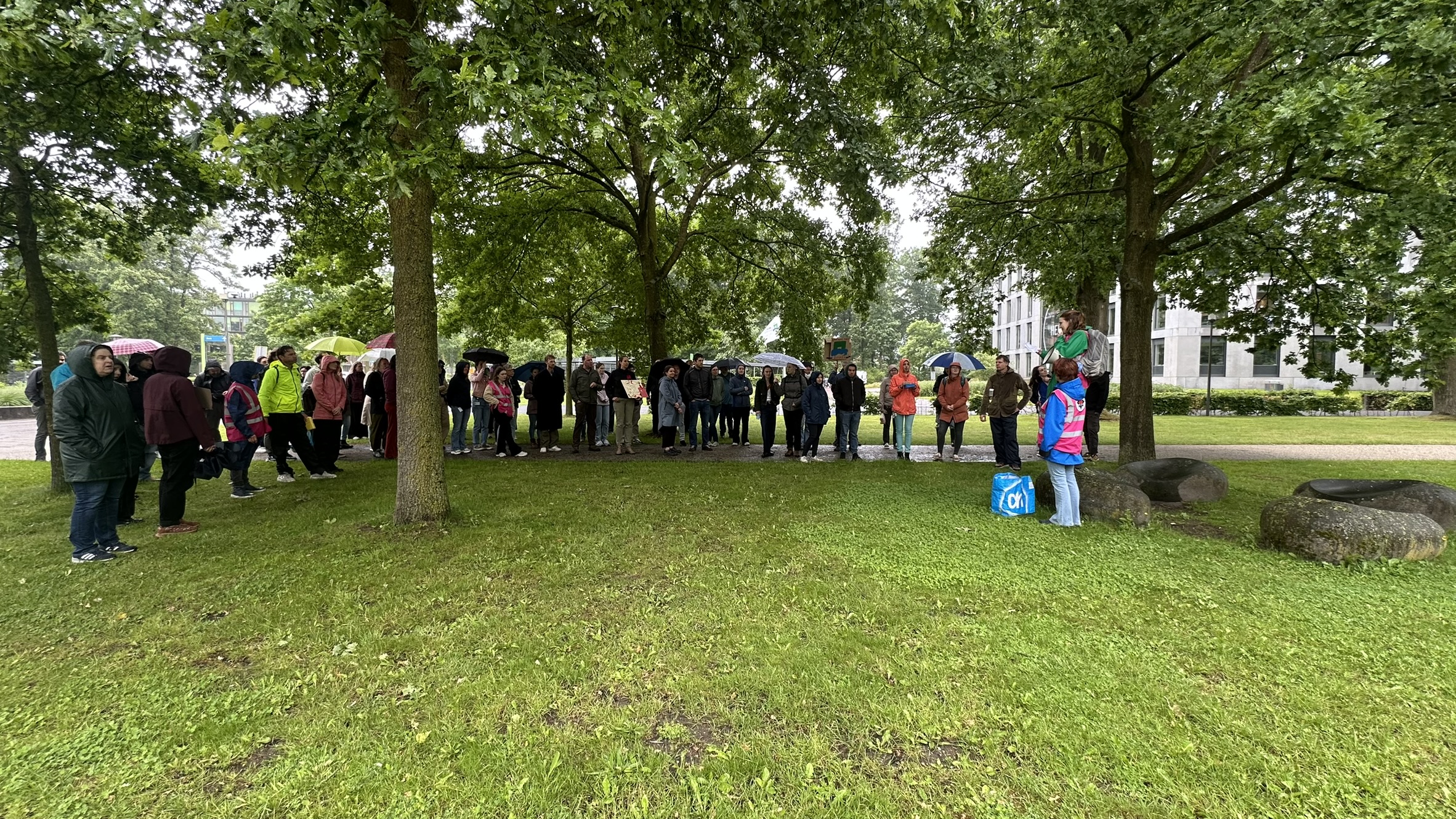Minister Dijkgraaf is working on draft legislation to reduce the influx of internationals in education, and Pieter Omtzigt want to ban education in English. How does news such as this affect internationals? Do they still feel welcome in the Netherlands? Resource and magazines from five other universities held a survey to gauge the sentiment.
With elections just around the corner, the position of internationals at Dutch universities is one of the issues under debate. Right-wing parties such as Pieter Omtzigt’s Nieuw Sociaal Contract are concerned about the number of international students coming to the Netherlands. Many other political parties supported his proposal to reduce the use of English at universities.
How does this discussion make international students and employees feel? Are they afraid they may no longer be welcome in the Netherlands? Spoiler alert: Wageningen internationals feel more at home than internationals at other universities. But there is more that stands out.
But first, who organised the survey? The Ukrant in Groningen, UToday in Twente, Delta in Delft, DUB in Utrecht, Vox in Nijmegen and Resource in Wageningen sent out a survey in the past few weeks to which a total of 1330 internationals responded. One hundred thirty of the respondents came from WUR, ten bachelor students, 46 master’s students, 36 PhD students and 38 other employees.
Less welcome
The results show that students and employees from all the participating universities feel less welcome than when they arrived. That also applies to Wageningen internationals, although the latter feel more welcome in the Netherlands than internationals elsewhere. On average, the scores of all the respondents dropped by half a point on a five-point scale, from ‘more or less welcome’ to almost neutral.
Approximately half of the international students and employees say that the reason behind this change is that Dutch politicians are increasingly negative towards internationals. Internationals in Wageningen cite this argument considerably less. If they feel unwelcome, it is because they don’t speak the language or have trouble making friends. Politician’s negative narrative about internationals comes third.
The language issue is noteworthy. Almost half of the WUR respondents do not yet speak Dutch, but 90 per cent say they want to learn it. Of the WUR internationals who say they speak some Dutch, almost three-quarters want extra Dutch language lessons.
Wageningen character
WUR’s international atmosphere is frequently cited as a reason for internationals to come to the Netherlands. If politicians decide to implement measures to restrict the number of internationals, this argument would become void. This is also stated by the Wageningen internationals, who consider it a major loss with far-reaching implications for the quality of education and research in the Netherlands.
A Portuguese PhD student writes: ‘You need only to take a look at Denmark. They have reversed their restrictions for internationals.’ Denmark decided to drastically lower the number of English-spoken programmes in 2021, but the government overturned this decision last month after employers complained about the increasing shortage of highly qualified personnel.
Approximately half of the Wageningen internationals feel more welcome within the university than elsewhere. Some 40 per cent feel no difference, and only 10 per cent feel more welcome outside the university than within. ‘Outside of the university, people don’t switch to English as easily’, say many respondents in Wageningen. Moreover, ‘there are more activities for internationals around the university.’ These arguments touch on the sense of community on the campus.
Debate on internationalisation
At a national level, the majority of the respondents are aware of the fact that the parliament is pushing for measures to reduce the number of international students at Dutch universities. Over ninety per cent of the respondents have at least heard something about the measures. Over 80 per cent are aware of the push to reduce the use of the English language. Wageningen internationals are less well-informed. Approximately one-quarter say they know nothing about these political developments.
The debate on internationalisation has not prompted any internationals to make plans to leave the Netherlands. Just under 30 per cent of the respondents consider leaving. At WUR, about one-third of the internationals are somewhat concerned about their position, and fewer consider leaving the Netherlands.
Election strategy
The majority of the respondents from Wageningen are not terribly worried. ‘This is part of the election strategy’, an employee who has lived in Wageningen for almost twenty years writes, They feel less welcome now than two decades ago. ‘They use big words to convince voters to elect them. Everyone with a rational mind knows that this country needs internationals and that the country must be open to the international market. Communicating in English is commonplace in business and science.’
The internationals in Wageningen consider budget cuts in English education as a big step back for the Netherlands. ‘It will have an adverse effect, and many Dutch students will choose to study abroad.’
Want to share your experiences? Email resource@wur.nl

 Illustration Valerie Geelen.
Illustration Valerie Geelen. 

